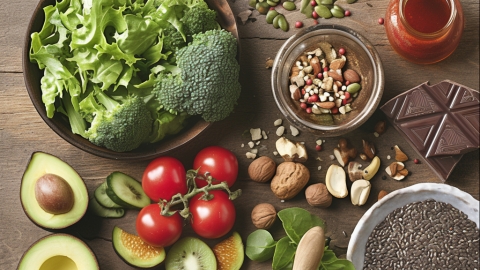What are the dietary precautions for gallbladder polyps in daily life?
In general, the daily diet for gallbladder polyps should focus on several key points: choosing low-fat foods, increasing dietary fiber intake, controlling cholesterol consumption, avoiding irritating foods, and maintaining regular meal times. If discomfort persists despite dietary adjustments, it is advisable to seek timely medical evaluation at a reputable hospital. The specific recommendations are as follows:

1. Choose Low-Fat Foods
High-fat foods can trigger strong contractions of the gallbladder, potentially increasing its workload and destabilizing polyps. It is recommended to consume low-fat options such as lean meat, skinless poultry, and skim milk. Reducing fat intake helps minimize stimulation to the gallbladder, supports normal gallbladder function, and lowers the risk of polyp-related discomfort.
2. Increase Dietary Fiber Intake
Dietary fiber promotes intestinal motility and reduces fat absorption in the gut, thereby indirectly relieving digestive strain on the gallbladder. Consuming more fiber-rich foods such as celery, spinach, oats, and apples can help regulate digestion and prevent fat accumulation that may negatively affect gallbladder health.
3. Control Cholesterol Intake
Excessive cholesterol can deposit within the gallbladder, potentially altering bile composition and making polyp management more difficult. It is important to limit high-cholesterol foods such as organ meats, egg yolks, and crab roe to prevent elevated cholesterol levels in bile and maintain a stable internal environment in the gallbladder.
4. Avoid Irritating Foods
Spicy, raw, cold, or fried foods can easily stimulate gallbladder contraction, possibly causing abdominal discomfort and affecting the status of polyps. It is best to reduce consumption of chili peppers, hot pots, ice cream, fried chicken, and similar items to minimize gallbladder irritation and lower the likelihood of symptoms such as abdominal pain and bloating.
5. Maintain Regular Meal Times
Irregular eating habits over time can disrupt normal gallbladder contractions and lead to bile stagnation, increasing gallbladder stress. Eating three balanced meals daily at consistent times—while avoiding binge eating or prolonged fasting—helps the gallbladder contract and empty regularly, supporting normal physiological function and promoting stability of gallbladder polyps.
Routine follow-up abdominal ultrasounds are recommended to monitor changes in polyp size. Additionally, avoid staying up late and maintain a regular sleep schedule to reduce metabolic disturbances that could impact the gallbladder. Engaging in mild physical activities such as walking or yoga can also help regulate bodily functions and support overall gallbladder health.




